In a significant development, India has decided to suspend the Indus Waters Treaty, an agreement that has governed water-sharing arrangements with Pakistan for decades.
This move comes as a response to Pakistan's continued cross-border terrorism and failure to act on previous concerns raised by India.
This is one of the major responses from India after flagging ‘Pakistan links’ to Wednesday’s Pahalgam attack in Jammu and Kashmir on Indian innocent citizens. At least 26 people were killed by a group of terrorists in Baisaran meadows in the upper reaches of Pahalgam on Tuesday afternoon.
The decision, which marks a turning point in South Asia's water diplomacy, was communicated through an official letter from India's Water Resources Secretary, Debashree Mukherjee, to her Pakistani counterpart.
On Thursday, Debashree Mukherjee formally notified Syed Ali Murtaza, Pakistan's Secretary of Water Resources, about India’s decision to temporarily halt the 1960 Indus Waters Treaty.
Explaining the rationale behind this action, Mukherjee wrote: “This is with reference to Government of India's notices sent to the Government of Pakistan seeking modification of the Indus Waters Treaty 1960 (the Treaty) under Article XII (3) of the Treaty. These communications cited fundamental changes in the circumstances that have taken place since the Treaty was executed that require a re-assessment of obligations under the various Articles of the Treaty read with its Annexures.”
The letter underscored several transformative changes, such as shifts in population dynamics and India’s advancing clean energy initiatives, which have altered the premises upon which the treaty was established.
Mukherjee emphasised the importance of honouring agreements in good faith, remarking, “The obligation to honour a treaty in good faith is fundamental to a treaty. However, what we have seen instead is sustained cross border terrorism by Pakistan targeting the Indian Union Territory of Jammu and Kashmir.”
The Indian executive also highlighted the challenges posed by Pakistan's refusal to cooperate in discussions, stating, “Pakistan has refused to respond to India’s request to enter into negotiations as envisaged under the Treaty and is thus in breach of the Treaty.”
This ongoing lack of dialogue, coupled with security concerns, has hindered India from fully exercising its water rights under the agreement.
Mukherjee declared, “The Government of India has hereby decided that the Indus Waters Treaty 1960 will be held in abeyance with immediate effect.”

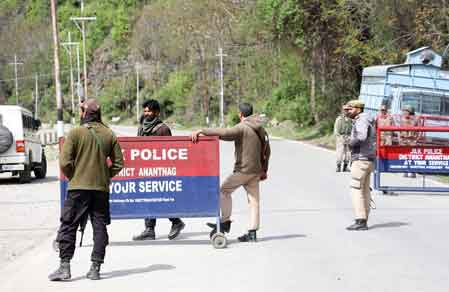
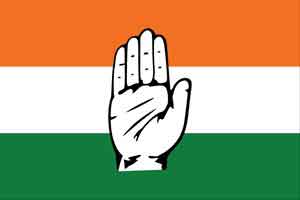
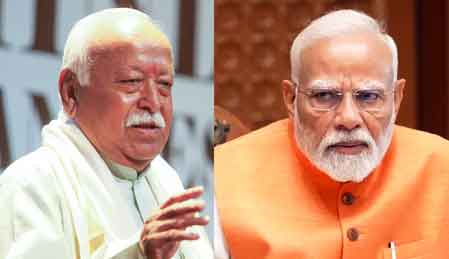
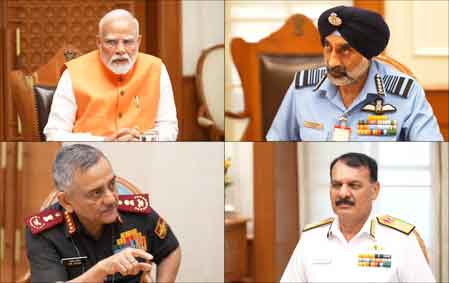
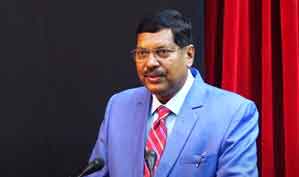


‘Pahalgam incident deeply disturbing & tragic’: Former Pakistan PM Imran Khan
Former Pakistan Prime Minister Imran Khan on Tuesday termed the Pahalgam terror attack as disturbing & tragic and also condoled the victims and their families.
Congress finally deletes 'Gayab' post targeting PM Modi after outrage
Under fire from the BJP over its social media post targeting Prime Minister Narendra Modi, Congress finally, on Tuesday, took down the controversial post.
Guterres calls EAM Jaishankar, Pak PM Sharif; stresses pursuing justice in Pahalgam terror attack
Secretary-General Antonio Guterres stressed the importance of pursuing justice in the Pahalgam terrorist attack while speaking with External Affairs Minister (EAM) S Jaishankar and Pakistan’s Prime Minister Muhammad Shebaz Sharif, his Spokesperson Stephane Dujarric said on Tuesday.
Congress organises ‘Save Constitution’ rallies across NE states
The opposition Congress has been organising ‘Samvidhan Bachao’ (Save Constitution) campaign in the northeastern states. Claiming that the Constitution is in danger under the BJP-led Central government, the opposition Congress held a massive rally in Agartala on Tuesday.
RSS chief Bhagwat meets PM Modi after security huddle: Signs of a hard-hitting response in the works
In a significant political development, RSS chief Mohan Bhagwat met Prime Minister Narendra Modi at his official residence at 7, Lok Kalyan Marg on Tuesday evening.
What PM Modi's free hand to armed forces against terror means for cross-border action?
Prime Minister Narendra Modi’s unambiguous message during a high-level security meeting - ‘India is determined to deliver a crushing blow to terrorism’ - marks more than just a strong statement of resolve.
Justice BR Gavai appointed as next Chief Justice of India
Justice Gavai was elevated as a Judge of the Supreme Court on May 29, 2019. Appointed as Additional Judge of the Bombay High Court in November 2003, he became a permanent Judge in November 2005.
Three more Bangladeshi nationals held in Tripura
The Tripura Frontier of the Border Security Force (BSF) on Tuesday apprehended three Bangladeshi nationals, including a woman, for illegally entering India, officials said.